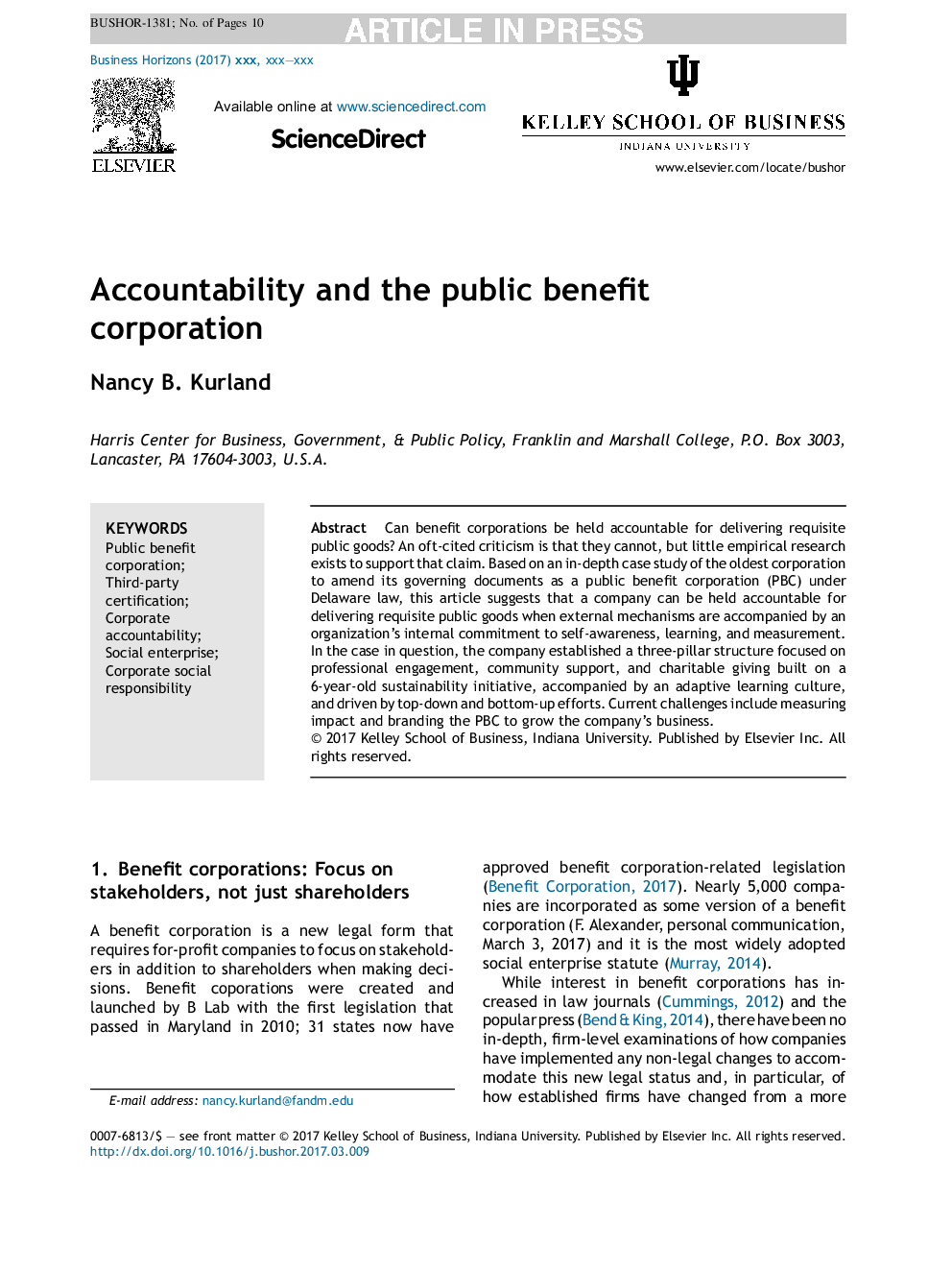| Article ID | Journal | Published Year | Pages | File Type |
|---|---|---|---|---|
| 5108875 | Business Horizons | 2017 | 10 Pages |
Abstract
Can benefit corporations be held accountable for delivering requisite public goods? An oft-cited criticism is that they cannot, but little empirical research exists to support that claim. Based on an in-depth case study of the oldest corporation to amend its governing documents as a public benefit corporation (PBC) under Delaware law, this article suggests that a company can be held accountable for delivering requisite public goods when external mechanisms are accompanied by an organization's internal commitment to self-awareness, learning, and measurement. In the case in question, the company established a three-pillar structure focused on professional engagement, community support, and charitable giving built on a 6-year-old sustainability initiative, accompanied by an adaptive learning culture, and driven by top-down and bottom-up efforts. Current challenges include measuring impact and branding the PBC to grow the company's business.
Keywords
Related Topics
Social Sciences and Humanities
Business, Management and Accounting
Business and International Management
Authors
Nancy B. Kurland,
